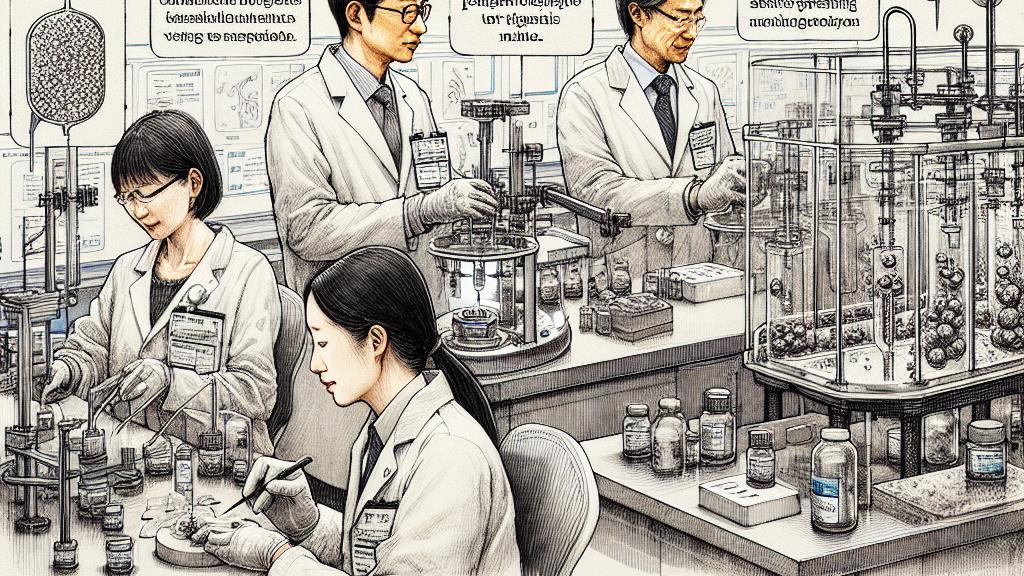Innovations in Synthetic Chemistry for Drug Delivery
Overview
- Breakthrough techniques now allow precise targeting of drugs directly to tumors, revolutionizing cancer treatment.
- Advanced chemical methods enable dynamic adjustments of protein identities, optimizing therapeutic effects.
- This innovative technology holds immense potential for versatile drug applications across a variety of medical conditions.

Revolutionary Developments in Targeted Drug Delivery
In a groundbreaking advancement from Japan, researchers at the RIKEN Cluster for Pioneering Research are changing the landscape of drug delivery. This innovative team has harnessed the power of synthetic chemistry to modify the identities of proteins within the body, making it possible to target tumors in mice with unprecedented precision. Imagine a scenario where cancer-fighting drugs are directed right to the heart of a tumor and then seamlessly excreted after delivering their powerful payload. By altering the surface markers of albumin, the body's most abundant protein, treatments can accurately home in on intended targets, thereby drastically reducing the potential for harm to healthy tissues—this is the future of personalized medicine.
Ingenious Biochemical Mechanisms at Play
At the core of this exciting study lies a sophisticated 'click-to-release' mechanism, an ingenious innovation that truly sets it apart. This method permits researchers to switch the identification patterns on albumin after it has reached its destination, providing a remarkable level of adaptability. For instance, specific identifiers enable the albumin to latch onto human colon cancer cells, effectively directing the drug for safe elimination through the bladder afterward. Such functionality highlights not only a novel approach to drug delivery but also emphasizes a dynamic system capable of addressing multiple diseases—all thanks to clever modifications that lend incredible versatility to its application.
Exciting Prospects for the Future of Drug Delivery
Looking ahead, the implications of these advances are profound and could reshape therapeutic strategies as we know them today. Lead researcher Katsunori Tanaka envisions this technology serving as a highly efficient delivery system for both traditional drugs and medical radionuclides. This capability would enable the swift removal of therapeutic agents from tumors post-treatment, significantly mitigating any adverse effects associated with prolonged exposure. Furthermore, the idea of a single adaptable molecule acting as a 'patrolling agent'—capable of navigating through various organs while executing unique therapeutic functions in each—invokes imagery reminiscent of science fiction. Concepts harkening to the classic 'Fantastic Voyage' could soon provide concrete solutions to complex health challenges, rendering this field even more captivating for both scientists and the general public alike.

Loading...